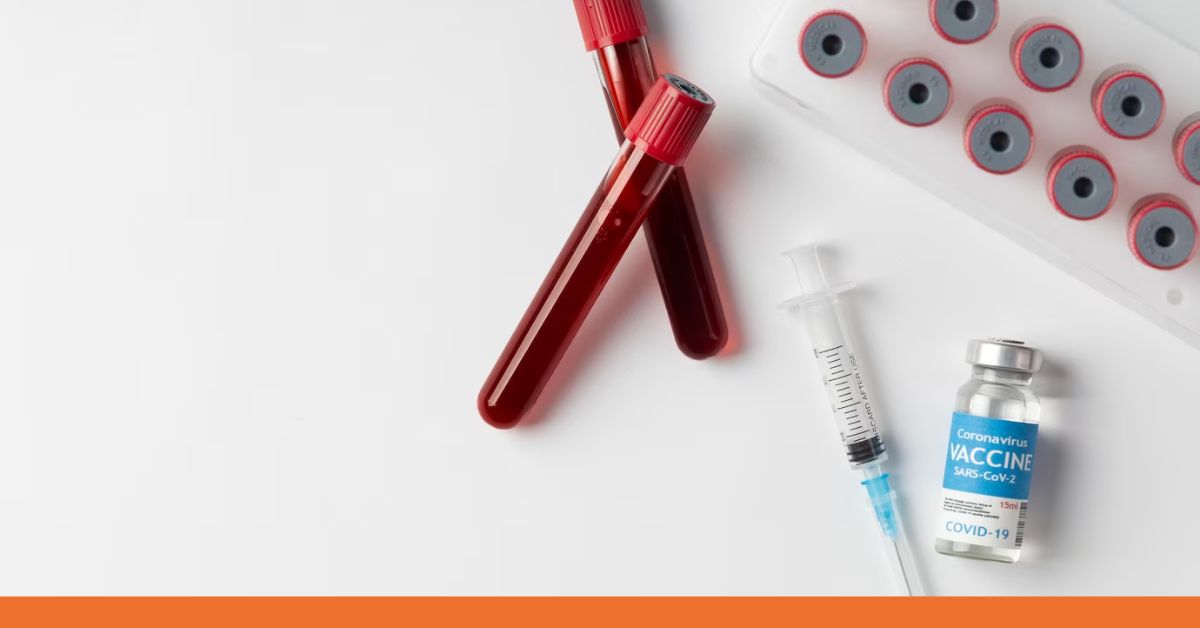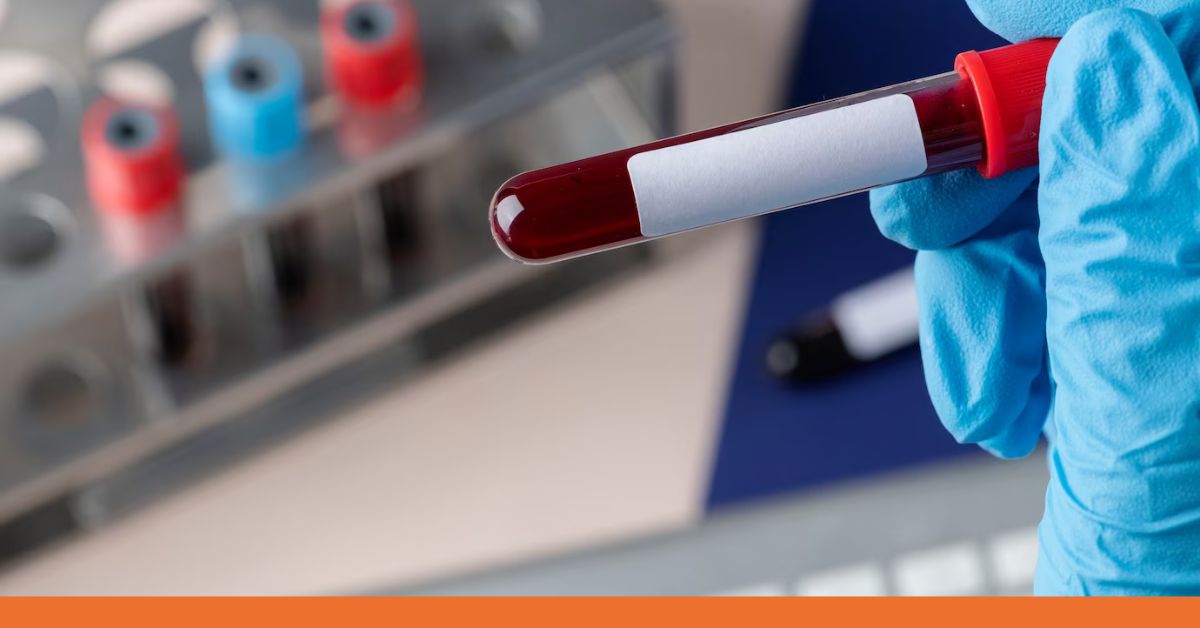
When it comes to maintaining good health, building a strong relationship with your primary care doctor in Bridgeport, CT, is crucial. Your doctor serves as the gateway to your overall well-being, managing your health and coordinating any necessary referrals to specialists. To make the most of your primary care visits, being open and transparent about various aspects of your health is essential. Here are vital pieces of information you should never hide from your primary care doctor in Bridgeport, CT, when receiving care.

STDs are infections that are primarily transmitted through sexual activity, including vaginal, anal, and oral sex. Among the wide array of STDs, four are incurable: hepatitis B, herpes, HIV (human immunodeficiency virus), and HPV (human papillomavirus). These infections can have lifelong consequences and necessitate ongoing medical management.
Hepatitis B is a viral infection that primarily affects the liver. It is spread through contact with infected blood, semen, vaginal fluids, or other bodily fluids. While some individuals with hepatitis B may recover from the infection, others can develop chronic hepatitis B, leading to liver damage, cirrhosis, or liver cancer. Vaccination is available to prevent hepatitis B, and early detection through STD testing in Fairfield, CT, can help manage the infection’s progression.
Hepatitis B is a contagious viral infection that can be contracted through various means. It’s important to understand how the virus is transmitted to take appropriate precautions and reduce the risk of infection. While sexual contact is one transmission mode, it’s not the only way hepatitis B can be contracted. Here are three common ways the virus can spread:
Hepatitis B is most commonly spread through contact with an infected person’s blood. This can happen through sharing needles or other drug paraphernalia, getting a tattoo or piercing with unsterilized equipment, or accidental needle sticks, especially in healthcare settings.
A pregnant woman with hepatitis B can pass the virus to her baby during childbirth. This is why pregnant women need to be screened for hepatitis B and babies born to infected mothers to receive appropriate medical care and vaccinations to prevent transmission.
The virus can also be spread through sharing personal items that come into contact with infected blood, such as razors or toothbrushes. It’s important to avoid sharing these items to prevent potential transmission.
Hepatitis B can also be transmitted through sexual intercourse, making it a sexually transmitted infection (STI). When engaging in sexual activities that involve the exchange of bodily fluids, such as vaginal, anal, or oral sex, there is a risk of hepatitis B transmission if one partner is infected.
Fatigue is a prevalent symptom among individuals infected with hepatitis B, often presenting as an overwhelming and persistent feeling of tiredness. This fatigue can be debilitating, affecting daily activities, work, and overall quality of life. Unlike normal tiredness that can be alleviated by rest, the fatigue associated with hepatitis B may not improve even after getting adequate sleep. It can impact physical and mental well-being, making routine tasks challenging.
Jaundice is a distinctive symptom of hepatitis B, marked by the yellowing of the skin and eyes. This yellow discoloration occurs due to the buildup of bilirubin, a yellow pigment produced during the breakdown of red blood cells. Normally, the liver processes and eliminates bilirubin from the body, but in hepatitis B, the liver’s function is impaired. As a result, bilirubin accumulates in the bloodstream, leading to the characteristic yellowing of the skin and eyes. Jaundice is not only a visible sign of hepatitis B but also an indicator of the virus’s impact on liver function.
Abdominal pain is a symptom that can be associated with hepatitis B, particularly discomfort or a dull ache in the abdominal region, often centered around the liver area. This pain may vary in intensity and can be accompanied by a sensation of fullness or bloating. The source of abdominal pain in hepatitis B can be attributed to the inflammation of the liver, as well as potential enlargement or stretching of the liver capsule.
Hepatitis B can lead to a notable decrease in appetite, resulting in a loss of interest in eating and subsequent weight loss. The virus’s effect on the liver can disrupt the normal digestion and nutrient absorption processes. As a result, individuals with hepatitis B may find themselves feeling full quickly or experiencing discomfort after eating. A reduced desire to eat and potential digestive issues can contribute to weight loss over time.
Some individuals with hepatitis B can experience muscle and joint pain or stiffness. This symptom adds to the discomfort and malaise that may accompany the infection. The exact mechanisms behind these pains are not fully understood, but they are believed to be linked to the body’s immune response and inflammatory processes triggered by the virus. Muscle and joint pain can range from mild to moderate and may affect various body parts, including the arms, legs, back, and joints.
One of the noticeable changes that individuals with hepatitis B may observe is a darkening of the urine. This darkening can be attributed to the accumulation of bilirubin, a pigment produced when red blood cells break down. Normally, the liver processes and excretes bilirubin, giving urine a yellow color. In hepatitis B, compromised liver function can lead to bilirubin buildup, making the urine appear darker, sometimes even brownish. Dark urine serves as a visual cue of liver dysfunction and underscores the importance of seeking medical evaluation and STD testing in Fairfield, CT, for proper diagnosis and management.
Stool color can also be affected by hepatitis B infection. Some individuals may notice that their stools become pale or clay-colored. This color change is due to disruptions in the liver’s ability to process bilirubin and produce bile, which normally gives stools their brown color. As a result, stools may appear pale, gray, or even white. Pale stools serve as another indicator of liver dysfunction and can prompt individuals to seek medical attention. Monitoring changes in stool color, along with other symptoms, and undergoing STD testing in Fairfield, CT, can aid in the timely detection and management of hepatitis B.
Itchy skin, known medically as pruritus, can manifest in some cases of hepatitis B. The itching can range from mild to severe and may be widespread or localized to certain body areas. The exact cause of itching in hepatitis B is not fully understood, but it is believed to be related to the buildup of bile salts and toxins in the bloodstream due to impaired liver function. Itchy skin can significantly impact a person’s quality of life, and addressing this symptom is essential for managing overall well-being during the infection.
Severe damage to the liver caused by chronic hepatitis B can lead to a condition known as ascites, characterized by the accumulation of fluid in the abdominal cavity. This can result in abdominal swelling, discomfort, and a feeling of fullness. Ascites are a serious complication of hepatitis B and require prompt medical attention. It is a stark reminder of the potential consequences of untreated or advanced hepatitis B infection. Regular STD testing in Fairfield, CT, and early intervention is key in preventing such complications and ensuring optimal liver health.

Herpes is caused by the herpes simplex virus (HSV) and is characterized by recurrent outbreaks of painful sores or blisters in the genital or oral area. While antiviral medications can help manage symptoms and reduce the frequency of outbreaks, there is no cure for herpes. Regular STD testing in Fairfield, CT, and practicing safe sex are essential to prevent its transmission.
One of the hallmark symptoms of herpes is the development of sores or blisters on or around the affected area. These sores can be painful, itchy, and uncomfortable. In genital herpes, the sores appear on or around the genital and anal areas. In oral herpes, the sores are commonly found on or around the mouth and lips.
Before the appearance of sores, many people experience itching, tingling, or burning sensations in the affected area. These sensations are often the first indicators of an impending outbreak. While itchy sores are not enough to constitute, it’s important to undergo STD testing in Fairfield, CT for a confirmed diagnosis.
Herpes is commonly transmitted through direct contact with the skin of an infected person, especially during intimate activities like kissing, sexual contact or touching affected areas.
Even when no symptoms are present, herpes can be spread through viral shedding, where the virus is active on the skin’s surface. This makes close contact risky even in the absence of visible sores.
Sharing items like towels, razors, or utensils with an infected person can also lead to herpes transmission, as the virus can survive on these surfaces for a short period.
HIV attacks the immune system, leaving the body vulnerable to infections and diseases. Over time, HIV can progress to AIDS (acquired immunodeficiency syndrome), severely weakening the immune system. While advancements in medical treatment have transformed HIV from a once-fatal infection to a manageable chronic condition, there is currently no cure. Early detection through regular STD testing in Fairfield, CT, is crucial for timely medical intervention and preventing virus transmission.
As HIV weakens the immune system, it creates an environment in which opportunistic infections can thrive. Opportunistic infections are typically rare or harmless in individuals with healthy immune systems but can be severe or even life-threatening in people with advanced HIV. These infections can affect various organs and systems, including the lungs, brain, eyes, and gastrointestinal tract.
HIV is associated with an increased risk of certain cancers, particularly those related to viruses. People with HIV have a higher risk of developing Kaposi’s sarcoma, a cancer that causes lesions on the skin, mucous membranes, or internal organs. They are also at an elevated risk of non-Hodgkin lymphoma, a cancer originating in the lymphatic system.
HIV can affect the nervous system, leading to neurological complications. These may include cognitive impairment, memory problems, and difficulties with concentration and focus. In some cases, HIV-associated neurocognitive disorders (HAND) can occur, affecting cognitive function and daily functioning.
People with HIV have an increased risk of cardiovascular diseases, including heart attacks and strokes. Chronic inflammation, a common feature of HIV infection, can contribute to the development of cardiovascular complications.
HIV can lead to gastrointestinal problems, such as diarrhea, nausea, vomiting, and weight loss. These symptoms can significantly impact a person’s quality of life and overall well-being.
Living with HIV can take a toll on mental health. Stigma, discrimination, and the emotional challenges of managing a chronic illness can contribute to depression, anxiety, and other mental health issues.
HPV is a group of viruses that can lead to various health issues, including genital warts and certain types of cancer. It is incredibly common and can be spread through vaginal, anal, or oral sex. While there is no cure for HPV, vaccines are available to prevent infection with some of the most high-risk strains. Regular STD testing in Fairfield, CT, including Pap and HPV tests, can help detect and manage the presence of the virus.
HPV infection can cause the development of genital warts, which are growths or lumps that appear on the genital or anal area. These warts can vary in size and appearance and may be raised, flat, or cauliflower-like. While genital warts are not cancerous, they can cause discomfort, itching, and emotional distress.
Certain high-risk strains of HPV are linked to cervical cell changes and abnormalities. These changes can be detected through regular Pap tests, which examine cells from the cervix. If left untreated, these abnormalities can progress to cervical cancer over time.
Persistent infection with high-risk HPV strains is a significant risk factor for cervical cancer. Cervical cancer is a serious condition that can be life-threatening if not detected and treated in its early stages. Regular Pap tests and HPV tests are crucial for early detection, allowing for timely medical intervention to prevent the development of cervical cancer.
In addition to cervical cancer, HPV is also associated with other types of cancer, including anal, vaginal, vulvar, penile, and oropharyngeal cancers. Persistent HPV infections can increase the risk of these cancers, making regular STD testing in Fairfield, CT, and vaccination important preventive measures.
While rare, HPV can also lead to respiratory papillomatosis, a condition in which warts develop in the airways, potentially affecting breathing and voice quality. This condition is more commonly seen in children born to mothers with genital warts.

STD testing in Fairfield, CT, plays a pivotal role in safeguarding the health and well-being of individuals and the community at large. Regular STD testing in Fairfield, CT, can identify infections early, allowing for prompt medical intervention and reducing the risk of complications. When it comes to the four incurable STDs mentioned above, STD testing in Fairfield, CT, takes on added significance due to the potential for long-term health implications.
STD testing in Fairfield, CT, is pivotal in enabling early detection and treatment of sexually transmitted infections. Timely medical intervention, made possible through regular testing, can significantly impact the course of infections. Detecting an infection early through accurate STD testing in Fairfield, CT, allows healthcare providers to promptly initiate appropriate treatment, which can effectively manage symptoms, alleviate discomfort, and minimize the risk of complications.
Regular STD testing in Fairfield, CT, is a powerful tool in preventing the transmission of sexually transmitted diseases. Knowing their status gives individuals valuable information to make responsible decisions regarding their sexual health and relationships. Armed with this knowledge, they can take appropriate precautions, such as practicing safe sex and using barrier methods like condoms.
The act of undergoing STD testing in Fairfield, CT, extends beyond individual health—it contributes to a larger societal effort of raising awareness and promoting education about sexually transmitted diseases. Regular STD testing in Fairfield, CT, underscores the prevalence of these infections and reinforces the importance of safe sexual practices. Through education and awareness campaigns, individuals become empowered with accurate information about the risks, prevention strategies, and available resources. Individuals who have undergone accurate STD testing in Fairfield, CT, are better equipped to make choices that prioritize their sexual health and well-being.
Engaging in open discussions about STD testing in Fairfield, CT, and sexual health is crucial to dismantling the stigma surrounding these infections. When individuals openly share their experiences and choices, it contributes to a culture of acceptance and understanding. By fostering an environment where seeking testing and treatment is met with empathy rather than judgment, more people are encouraged to prioritize their health. Removing the stigma associated with STD testing in Fairfield, CT, fosters a sense of community and encourages individuals to take proactive steps toward their sexual well-being.
STD testing in Fairfield, CT, paves the way for open and honest communication between sexual partners. When individuals know their status through regular testing, they are better positioned to engage in transparent discussions with their partners about sexual health. This communication is vital for making informed decisions that align with both partners’ well-being.
Incurable STDs pose unique challenges to individuals and healthcare systems alike. While there may not be a cure for infections like hepatitis B, herpes, HIV, and HPV, proactive measures such as STD testing in Fairfield, CT, can significantly impact their management and prevention. Regular testing empowers individuals to take control of their sexual health, make informed decisions, and contribute to a healthier community. As part of a comprehensive approach to sexual health, STD testing in Fairfield, CT, is vital in ensuring a safer and more informed future for everyone in the community.
Are you concerned about your sexual health? Take STD testing in Fairfield, CT, today at Docs Primary Care – Fairfield! With top-tier facilities and resources and our caring and customer-centered approach, we can provide accurate, confidential, and fast STD testing in Fairfield, CT!
Contact us now and get your STD test results within 20 minutes at Docs Primary Care – Fairfield!


During this surge in COVID-19 cases, our primary focus is meeting the high demand for tests, and we are seeing higher than usual wait times. This means we are unable to answer most phone calls. Please know that our teams are working very hard during this time to care for as many patients as safely as possible. Please click the button below for answers to common questions. We appreciate your understanding.